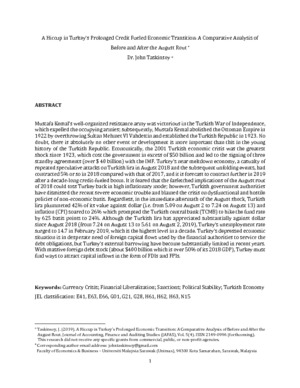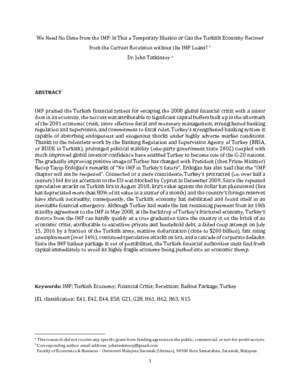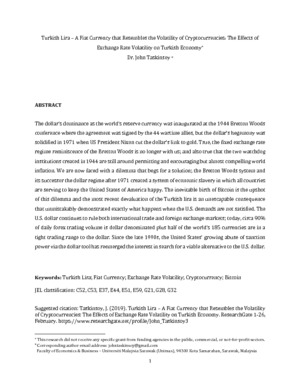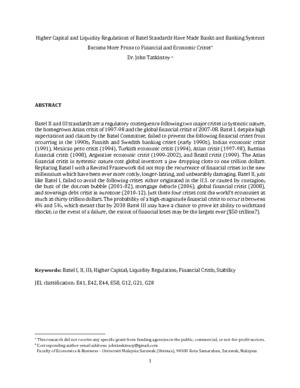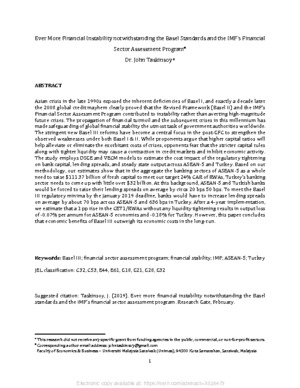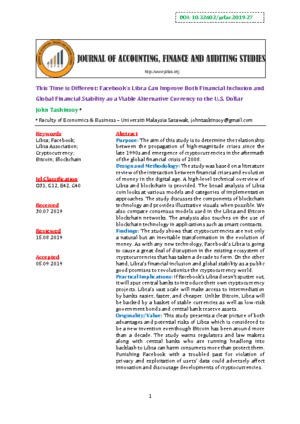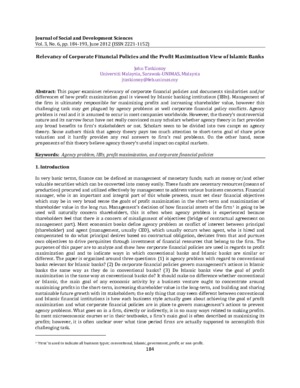List of Categories and SubCategories
Change Your Picture

Turkey’s Unravelling Economy Resembles The Ottoman Empire’s Financial Collapse
JOHN TASKINSOY
VIEWS
1345
INFO
more

- Category : Business
- Size : 1384151
- By : JOHN TASKINSOY

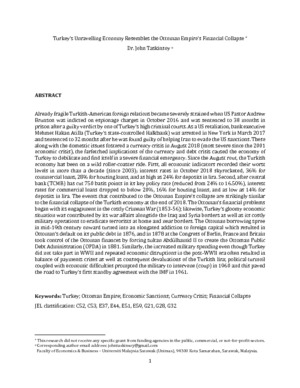

Using Your Google Account
Google Login/Sign up
OR
Recover Your Password
Abstract
Already fragile Turkish-American foreign relations became severely strained when US Pastor Andrew Brunson was indicted on espionage charges in October 2016 and was sentenced to 38 months in prison after a guilty verdict by one of Turkey’s high criminal courts. As a US retaliation, bank executive Mehmet Hakan Atilla (Turkey's state-controlled Halkbank) was arrested in New York in March 2017 and sentenced to 32 months after he was found guilty of helping Iran to evade the US sanctions. These along with the domestic issues fostered a currency crisis in August 2018 (most severe since the 2001 economic crisis), the farfetched implications of the currency and debt crisis caused the economy of Turkey to debilitate and find itself in a severe financial emergency. Since the August rout, the Turkish economy has been on a wild roller-coaster ride. First, all economic indicators recorded their worst levels in more than a decade (since 2003); interest rates in October 2018 skyrocketed, 36% for commercial loans, 28% for housing loans, and as high as 24% for deposits in lira. Second, after central bank (TCMB) has cut 750 basis points in its key policy rate (reduced from 24% to 16.50%), interest rates for commercial loans dropped to below 20%, 16% for housing loans, and as low as 14% for deposits in lira. The events that contributed to the Ottoman Empire’s collapse are strikingly similar to the financial collapse of the Turkish economy at the end of 2018. The Ottoman’s financial problems began with its engagement in the costly Crimean War (1853-56); likewise, Turkey’s gloomy economic situation was contributed by its war affairs alongside the Iraq and Syria borders as well as its costly military operations to eradicate terrorists at home and near borders. The Ottoman borrowing spree in mid-19th century onward turned into an elongated addiction to foreign capital which resulted in Ottoman’s default on its public debt in 1876, and in 1878 at the Congress of Berlin, France and Britain took control of the Ottoman finances by forcing sultan Abdülhamid II to create the Ottoman Public Debt Administration (OPDA) in 1881. Similarly, the increased military spending even though Turkey did not take part in WWII and repeated economic disruptions in the post-WWII era often resulted in balance of payments crises as well as consequent devaluations of the Turkish lira; political turmoil coupled with economic difficulties prompted the military to intervene (coup) in 1960 and this paved the road to Turkey’s first standby agreement with the IMF in 1961.
Recommended Papers


